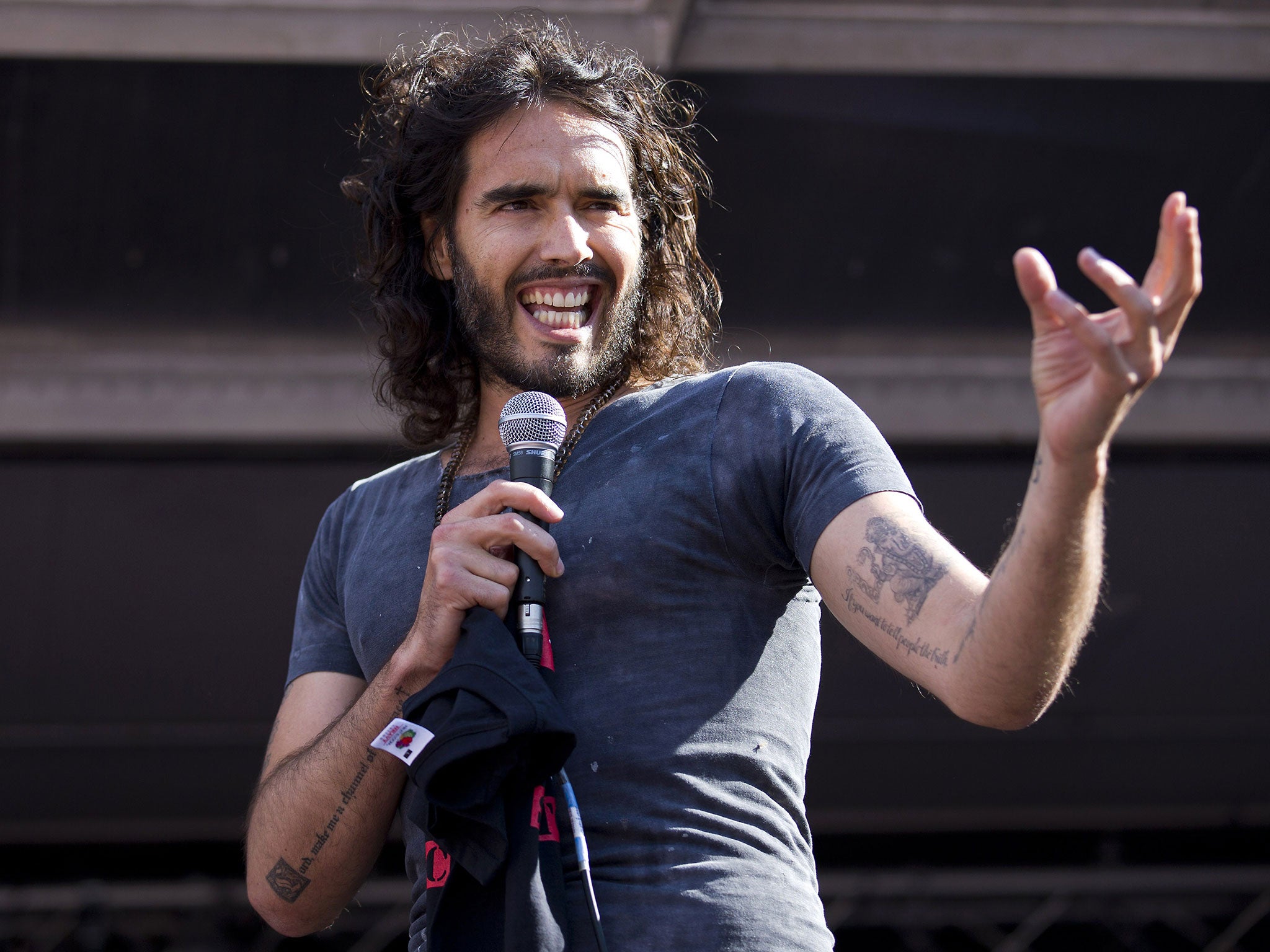Russell Brand's 'sex appeal' will deter voters, the Church of England says
Bishops write open letter urging Christians to vote at the election

The Church of England is worried that Russell Brand’s mammoth “sex appeal” is turning people off voting.
In a move to counter claims by the comedian that voting is a waste of time because it changes nothing, bishops signalled their opposition to a British exit from the EU in an open letter to Christians urging them to vote in the general election.
Speaking at a briefing today, the Bishop of Norwich, the Rt Rev Graham James said: “We hope that this will animate Christians to engage in politics. What we want them to do is to engage in the political processes.
“We’re conscious that there are a number of voices around, probably the most famous of which is Russell Brand, telling people that they shouldn't bother with voting and shouldn't bother to exercise their hard-won democratic freedoms.
“I’m conscious just going around some of our youth groups and speaking to youth leaders that that has had a more profound effect than I had anticipated.
Russell Brand's Most Controversial Quips
Show all 19“And while one may think that the bishops of the Church of England don’t quite have the sex appeal of Russell Brand, we think that we should counter it.”
The bishops said the letter was "not a shopping list of policies we would like to see" but a "call for the new direction that we believe our political life ought to take".
In the letter, the bishops carefully steered clear of endorsing any party and accused all political leaders of resorting to aiming “sterile arguments” at swing voters instead of addressing the big questions facing the country.
But their intervention on the EU will dismay Ukip as well as Tory Eurosceptics pressing for a rapid British exit from the 28-member bloc.
The bishops said the Church worked tirelessly after the Second World War to encourage European leaders to “work for the common good and focus on what they shared, not what divided them”.
They wrote: “That history is not an argument for the structures and institutions of the European Union as they now exist. But it is an enduring argument for continuing to build structures of trust and cooperation between the nations of Europe.”
Warning of the danger of ignoring the shared historic and cultural links between European countries, they said: “If there is a threat to the values and institutions of our nation, it does not come today from our closest neighbours in Europe.”
Church sources said the vast majority of bishops supporting continuing EU membership, although many recognised there was a strong case for renegotiating Britain’s position within the EU.
In other comments, the bishops:
- Raised questions over the renewal of the Trident missile system. They said: “Shifts in the global strategic realities mean that the traditional arguments for nuclear deterrence need re-examining.”
- Deplored the continuing widening of inequality in Britain and backed the “living wage”.
- Warned of an “ugly undercurrent of racism” in discussions treating immigration as a “problem”, but said its impact on communities should not be ignored.
- Congratulated the government for increasing Britain’s spending on overseas aid to 0.7 per cent of gross national income.
- Said they supported the vision of a “big society” promoted by David Cameron ahead of the last election, but recognised the time might not have been right for the idea to be translated into practical policies.
In their pastoral letter, the first of its kind ahead of an election, they warned that people felt “detached” from politics and called for a “fresh moral vision of the kind of country we want to be".
The bully pulpit: Where do church policies fit?
Europe
Britain should remain in the EU but no issue with reform.
Whose policy: Close to the leaders of Westminster’s main parties, but anathema to the Tory Right and Ukip
Poverty Pay
Decries the growth of in-work poverty and calls for the Living Wage.
Whose policy: Echoes Labour’s critique of Tory policy. Labour, the Green Party and Tory London Mayor Boris Johnson back the idea.
Trident
Doubts whether the missile system should be renewed. Says: “The traditional arguments for nuclear deterrence need re-examining.”
Whose policy: SNP and the Green Party.
Immigration
Bemoans the “ugly undercurrent of racism” in discussions but stresses its impact on settled communities has to be acknowledged.
Whose policy: A swipe at all main parties, especially Ukip.
Foreign wars
Military intervention not always wrong, but Iraq and Afghanistan show the difficulty of drawing a line between defending human values and stoking up resentment.
Whose policy: Closest to the Lib Dems and Greens.
Subscribe to Independent Premium to bookmark this article
Want to bookmark your favourite articles and stories to read or reference later? Start your Independent Premium subscription today.

Join our commenting forum
Join thought-provoking conversations, follow other Independent readers and see their replies